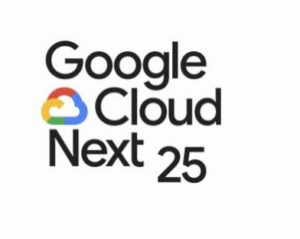
Google Pushes AI Agents Into Everyday Data Tasks

Shutterstock AI Image
The shift toward agentic AI has been gaining momentum across the enterprise world. AI agents are no longer just research demos or product experiments; they’re beginning to take on real operational roles. From orchestrating data pipelines to generating code and interpreting business logic, these systems are working autonomously within production environments, and tech giants are moving quickly to define what the underlying infrastructure for agentic AI should look like.
Google is the latest to expand into this space. At its Cloud Next Tokyo event, the company introduced a toolbox of AI agents and infrastructure upgrades built for data engineers, scientists, analysts, and developers.
These preview releases span key platforms including BigQuery, Vertex AI, and GitHub, and are supported by updates that integrate vector search and large language model reasoning directly into Google’s core data services. Instead of introducing a separate interface or standalone tool, Google has built these agents into the products teams already use. The aim is to make them immediately useful, without changing existing workflows. While some of the new Google AI agents work quietly in the background, others engage more directly in the interface. However, each one has the same core goal: reduce the time spent on repetitive tasks.
In software development, Gemini CLI supports teams working inside GitHub. It helps with pull request reviews, issue triage, and small coding tasks passed through comments. Mention it in an issue, and it will return with code, tests, and a draft change ready to review.
Alongside the agent, Google is releasing a few open-source workflows to automate common chores like labeling or sorting incoming issues. It’s a small shift, but one that could keep teams from getting bogged down in backlog clutter.
For data engineers, Google is introducing the Data Engineering Agent within BigQuery. It is built to take the manual setup out of building pipelines. Instead of writing SQL from scratch or switching between interfaces, users can describe what they need in plain language. Load a CSV, clean specific columns, and join it with another table. The agent handles the workflow from start to finish.
According to Google, this is not about removing engineers from the process. The intent is to speed up the parts of the job that are repetitive and time-consuming. The output is editable, and engineers remain in control. However, by reducing the time spent on setup, the agent can help teams move faster, especially when working with large volumes of messy or fragmented data.
That same principle carries over to the data science side. Google introduced a new Data Science Agent built into Colab Enterprise, designed to support the full cycle of exploratory analysis and modeling. It connects directly with BigQuery and Vertex AI, and responds to natural language prompts for tasks like data profiling, feature generation, and running machine learning models.
What sets it apart is how the agent follows through on each step as part of one continuous workflow. Google says it can plan, execute, reason, and present findings within a single session. Teams can review, tweak, and guide the results as needed, without losing momentum. Just like with the other agents, Google emphasized that the goal is not to replace data scientists, but to accelerate their process during the early, and often repetitive stages of experimentation.
For business analysts, Google is expanding its Conversational Analytics Agent with a new Code Interpreter. This tool translates natural language prompts into Python code, runs the analysis, and returns both results and visualizations.
 It is meant to handle the kinds of questions that go beyond simple SQL, such as customer segmentation or forecasting. Google says the goal is to help teams go from loose questions to structured insights without needing to write or manage code.
It is meant to handle the kinds of questions that go beyond simple SQL, such as customer segmentation or forecasting. Google says the goal is to help teams go from loose questions to structured insights without needing to write or manage code.
Supporting all of this are infrastructure upgrades across the data stack. Spanner now includes a columnar engine built for analytical workloads, with performance gains of up to 200 times on some queries. BigQuery is getting better access to live transactional data through a new feature called Data Boost. Google is also embedding vector search and retrieval-augmented generation (RAG) directly into its platform, giving agents persistent memory that stays grounded in real company data.
“The way we interact with data is undergoing a fundamental transformation, moving beyond human-led analysis to a collaborative partnership with intelligent agents,” wrote Yasmeen Ahmad, Managing Director for Google Cloud’s Data business, in a blog post announcing the launch. “This is the agentic shift, a new era where specialized AI agents work autonomously and cooperatively to unlock insights at a scale and speed that was previously unimaginable.”
Beyond the agents themselves, Google is laying the foundation for broader adoption. The new Gemini Data Agents API, launching first as the Conversational Analytics API, lets developers embed Google’s agentic capabilities into their own tools and workflows.
Alongside it, the Data Agents API and Agent Development Kit (ADK) allow teams to build their own agents from scratch, tuned to their internal logic and business needs. These tools turn the agentic model from something teams use into something they can shape.
To keep those agents grounded, Google is also rolling out Model Context Protocol (MCP) and the Looker MCP Server. These ensure that agents working with structured data follow the right context, permissions, and definitions.
The introduction of these agents and tools shows that Google is rethinking how people work with data. The goal isn’t to replace existing workflows, but to make them faster, lighter, and more focused. This may help teams spend less time on setup and more time on solving real problems.
Related Items
The Future of AI Agents is Event-Driven
TPC25 Provides Glimpse at Future of AI-Powered Science
Agentic AI Orchestration Layer Should be Independent, Dataiku CEO Says








































